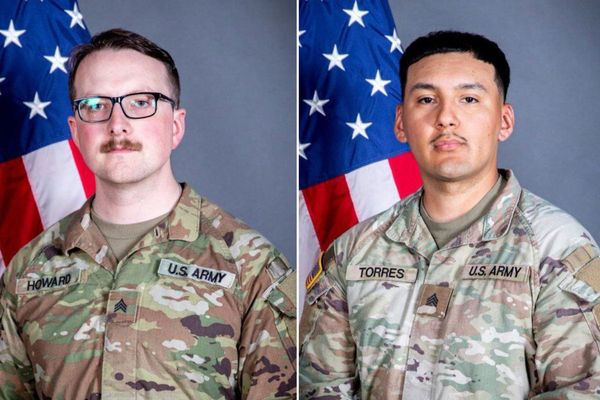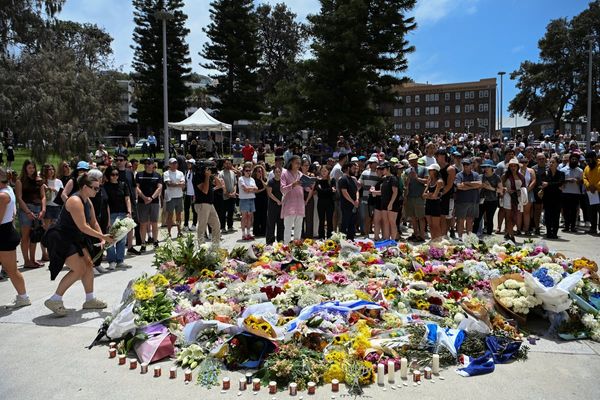
A former midwife at one of Sydney’s largest public hospitals who was referred to by a racist slur on a workplace whiteboard says the health system needs to do more to create culturally safe workspaces.
Renee Bani, a Kaanju and Wagadagam woman, worked at the Royal Prince Alfred hospital for seven years, primarily with the Aboriginal midwifery group practice program at the Camperdown campus. The program aims to provide Indigenous women and their babies with culturally safe care before, during and after birth.
In August 2022, Bani saw that the Aboriginal midwife on duty had been described using a derogatory term as “ABO MW” on a whiteboard in the hospital’s women and babies ambulatory care clinic. The whiteboard was used to record staff movements.
Bani said she quit the job in 2024 due to chronic stress, overwork and burnout, but the slur was the last straw.
She made a complaint to the hospital’s senior management, who began an internal investigation. But Bani said she was left feeling drained by the 12-month inquiry, which concluded without an outcome as the hospital said there was insufficient evidence.
“It just it started to really drag me,” she said. “I was fighting a battle that I couldn’t fight alone and it came down to, basically, racism.”
Bani said she wanted the hospital to introduce specific cultural awareness and anti-racism training to improve cultural safety for both staff and patients.
“People don’t understand simple cultural awareness and just [the] appropriateness of culture. It just really ticked me off that [they] could drag this whole [process] out and keep me tight lipped, keep pressuring me,” she said.
She said one manager didn’t realise the use of the slur was an issue and asked “What is wrong with it?”, until another non-Indigenous colleague raised her concerns. Bani said she also felt she was treated differently from her lighter-skinned colleagues.
“There is a lot of colourism too,” she said. “I mentioned that a lot in our clinical reviews, that I’m really struggling because I’m a darker skinned girl, and I’m not getting the same treatment.”
In response to Guardian Australia, a spokesperson for the Sydney local health district, which includes the RPA, said racism was unacceptable and that the whiteboard incident had been thoroughly investigated.
They said the hospital had since introduced a number of changes including mandatory cultural training for all staff in partnership with the Redfern Aboriginal medical service; an Aboriginal workforce network and a dedicated manager to promote a culturally safe workplace; and an elders network to improve culturally appropriate decision-making.
Cuts to Aboriginal midwife program
This month the RPA announced cuts to the number of midwives it employs, including a plan to merge the Aboriginal midwifery program with the general midwifery program, meaning the midwives will no longer be dedicated to Indigenous patients.
The proposal sparked swift condemnation from current and former staff and prompted the hospital to promise a review of the decision.
Paige Austin, one of only two current midwives assigned to the Aboriginal midwifery program, said it should have five full-time midwives.
She spoke to Guardian Australia in her capacity as a member of the New South Wales Nurses and Midwives’ Association, and said many women come to the program with fear or trauma from past negative experiences with healthcare providers and have complex social and health needs.
“There’s a real systemic racism in hospitals, and there’s history with Indigenous women around healthcare, and there’s just mistrust,” Austin said. “I think you can speak to any Indigenous family and find trauma that they’ve had with the healthcare system.”
Austin said the work done by the program “isn’t just midwifery”.
“We’re social workers, we’re caseworkers, we’re looking out for the women,” she said. “We work a lot with drugs and alcohol. We have meetings with DcJ, there’s extra things that normal MGP doesn’t do.”
The Sydney local health district said the Aboriginal midwifery program remained available for Aboriginal women, despite staff no longer being dedicated just to that purpose, and they would receive holistic, culturally safe and trauma-informed maternity care at RPA.
In a statement, it said the hospital made “every effort to fill vacancies within maternity services when they arise” and was committed to providing high quality care.
Guardian Australia has been investigating alleged racism and discrimination in mainstream maternity services.
Prof Catherine Chamberlain is a Palawa woman, the chief midwifery officer for the Congress of Aboriginal and Torres Strait Islander Nurses and Midwives, a professor in Indigenous health at the University of Melbourne and a former midwife. She said culturally safe and supportive workplaces were essential for all Aboriginal and Torres Strait Islander staff but that when she has asked at conferences if anyone had witnessed a lack of cultural safety in a healthcare setting, “every single person put their hand up”.
“Unfortunately the reality is I’ve heard so many anecdotal stories of where people have reported instances of racism and lack of cultural safety in the workplace, and it just hasn’t been dealt with,” she said.
“It is really critically important that all people experience care that’s safe, otherwise there’s a risk that people don’t access the care that they need.”
Chamberlain said creating a culturally safe workplace could help reduce the high rates of attrition among Aboriginal healthcare workers.
“We’ve got a huge challenge trying to recruit and retain Aboriginal nurses and midwives and there’s a whole lot of reasons for that including institutional racism and structural barriers,” she said.







